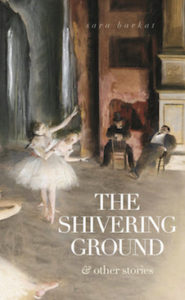< Return to Kahlil Gibran Poems
The Wise King
Once there ruled in the distant city of Wirani a king who was both mighty and wise. And he was feared for his might and loved for his wisdom.
Now, in the heart of that city was a well, whose water was cool and crystalline, from which all the inhabitants drank, even the king and his courtiers; for there was no other well.
One night when all were asleep, a witch entered the city, and poured seven drops of strange liquid into the well, and said, “From this hour he who drinks this water shall become mad.”
Next morning all the inhabitants, save the king and his lord chamberlain, drank from the well and became mad, even as the witch had foretold.
And during that day the people in the narrow streets and in the market places did naught but whisper to one another, “The king is mad. Our king and his lord chamberlain have lost their reason. Surely we cannot be ruled by a mad king. We must dethrone him.”
That evening the king ordered a golden goblet to be filled from the well. And when it was brought to him he drank deeply, and gave it to his lord chamberlain to drink.
And there was great rejoicing in that distant city of Wirani, because its king and its lord chamberlain had regained their reason.
—Kahlil Gibran
About Kahlil Gibran
Khalil Gibran (جبران خليل جبران) was a writer, visual artist, and poet with a prolific collection of work. He was born in 1883 in a village in the Mount Lebanon Mutasarrifate and in 1893 moved with his family to the United States where he enrolled in school in Boston, then went back home when he was fifteen to enroll in the Collège de la Sagesse. In 1902 he came back to Boston, and two years later his artwork was displayed for the first time. In 1905 he published his first book, and after that studied art in Paris for three years. Gibran wrote books in both Arabic and English, including poems, plays, fables, short stories, and political essays.
His cousin, Kahlil G. Gibran, a sculptor, described his work in this way. “Ignoring much of the traditional vocabulary and form of classical Arabic, he began to develop a style which reflected the ordinary language he had heard as a child in Besharri and to which he was still exposed in the South End [of Boston]. This use of the colloquial was more a product of his isolation than of a specific intent, but it appealed to thousands of Arab immigrants.” (Robin Waterfield, 1998) He was inspired by the King James Bible, the works of William Blake, whose drawings were in Gibran’s opinion “so far the profoundest things done in English.” (Joseph Ghougassian, 1973) Other inspirations included Francis Marrash (فرنسيس بن فتح الله بن نصر الله مرّاش), Walt Whitman, and Friedrich Nietzsche.

“Self Portrait and Muse” by Khalil Gibran
With visual art Gibran worked in oils, pencil, ink, watercolor, and gouache, and created more than seven hundred pieces of visual art. His work is featured in a number of museums, and his work The Prophet has been translated into more than 100 languages and has never been out of print, becoming popular in the American counterculture and New Age movement. The book was admired by Elvis Presley, John Lennon, Johnny Cash, David Bowie, Gilad Hochman (גילעד הוכמן) and Dana Al Fardan. Gibran has museums, memorials, schools, a garden, and a crater on Mercury named after him.
I hope you enjoyed The Wise King by Kahlil Gibran! If you liked The Wise King by Kahlil Gibran, you might enjoy more poems by him below.
< Return to Khalil Gibran Poems
“Stunning…from start to finish. Barkat is a fierce new voice.”

